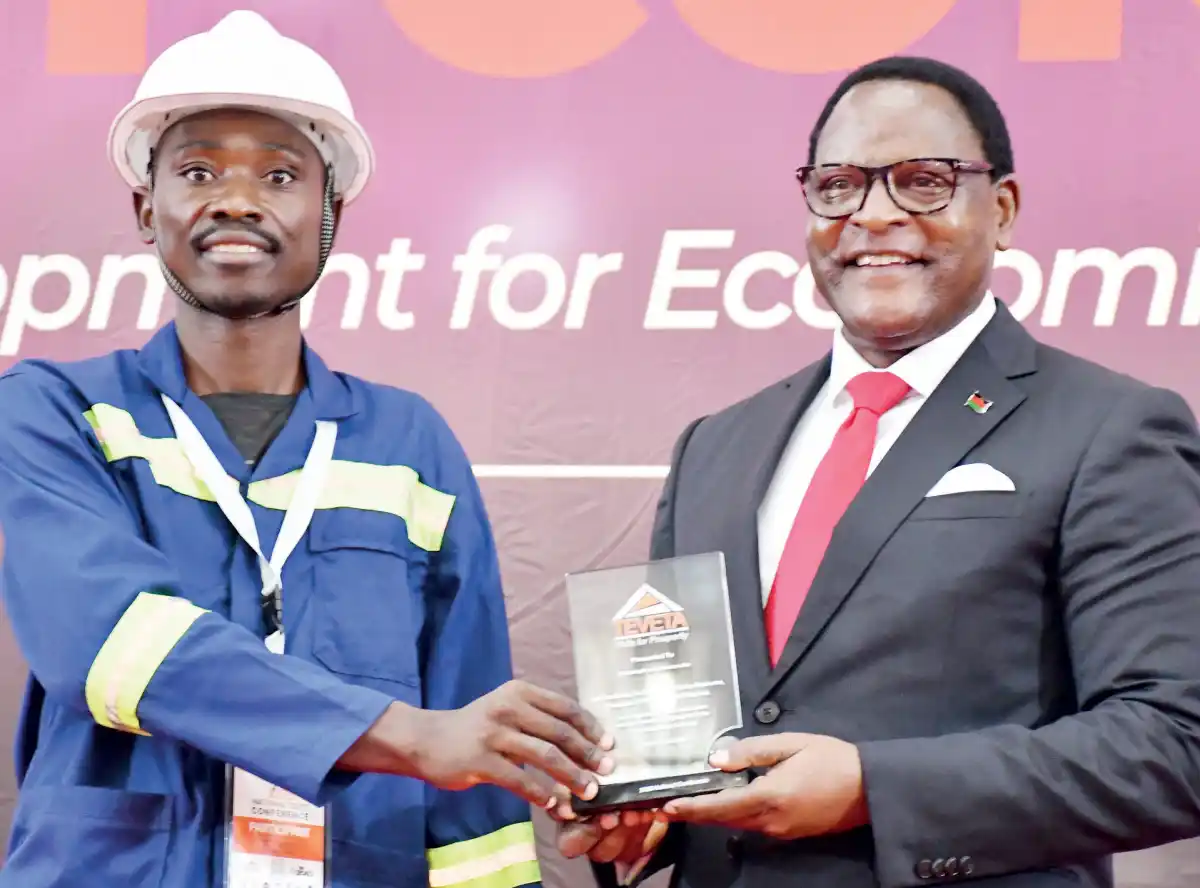
As Malawians prepare for the September 16 Local Government, Parliamentary and Presidential Elections this year, President Lazarus Chakwera has said he does not see himself being ousted out of power.
“But I am not getting out of government and those who like free things better brace for more tough times until 2030.
“We didn’t come here to eat free things but to work and to help the youth to get jobs so that you can work hard so that you have create your own wealth and be independent,” Chakwera said.
The President said this in Lilongwe Thursday, when he opened the 2025 National Technical, Entrepreneurial and Vocational Education and Training (Tevet) Conference.
The Malawi leader said his administration had sealed all loopholes for syphoning money from government coffers and that this had affected people who were surviving on looting.
“I know that the sealing of the loopholes has angered many people and some of them have already started discussing ways to remove Chakwera from government so that those who were looting from State House and the Reserve Bank [of Malawi] should come back into power,” Chakwera said.
The Malawi leader observed that on Wednesday this week, Parliament passed the K8.076 trillion 2025- 26 national budget but that the money is not there at the moment.
According to Chakwera, it will be up to Malawians to work hard and raise the required amount; otherwise, the budget will be there just on paper.
“The money for running government programmes comes from citizens who are working. So, if we are not working hard, the budget will just end on paper.
“Nobody will be allowed to play around with your taxes because the aim of the taxpayers is for the money to be used to build roads, schools, bridges, hospitals, buying medicine, books, fertiliser but also paying civil servants, police officers, health workers and soldiers,” he said.
According to Chakwera, working is a blessing while laziness and thievery are a curse.
He said most people were not aware that lazy people and thieves could have different deeds but their beliefs were the same.
“They all don’t believe that working is a blessing. They all believe that working is evil. In short, they all don’t believe that God is good because people who believe that God is good work hard,” he said.
Chakwera observed that by encouraging the youth to take part in Tevet programmes, the authorities were in essence helping to reduce cases of theft in the country.
On his part, Labour Minister Peter Dimba said Malawi needed a vibrant Tevet subsector to achieve Malawi 2063 goals.
Dimba said the current administration had tripled the intake into technical colleges from 2,500 to over 7,500.
Delivering a keynote speech, Malawi University of Science and Technology (Must) Vice Chancellor Address Malata said no country in the world could achieve any of the Sustainable Development Goals without Tevet.
According to Malata, even the achievement of the Africa Agenda 2063 relied on Tevet.
Malata said even the achievement of the pillars of the Malawi 2063 vision heavily relied on Tevet.
She underscored the need for mindset change among Malawians, saying Tevet was not second class.
Malata called for the review of the Tevet curriculum so that Tevet courses were taught, starting from early childhood development level.
Meanwhile, Employers Consultative Association of Malawi (Ecam) President Annie Chavula has said skills are a cornerstone of national development.
Chavula observed that countries that had prioritised skills development had registered remarkable development.
According to Chavula, Ecam has been advocating for demand-driven programmes.
She has since asked the government to continue modernising the country’s technical colleges.
Chavula said while job creation was important, Malawi must not undermine the power of entrepreneurship.
Teveta Board Chairperson Pyoka Tembo said the conference had been organised to evaluate the current Tevet landscape in Malawi by reviewing policies, programmes, projects, practices and their alignment with the national development agenda and labour market needs.
He added that the indaba also sought to share best practices, by highlighting successful Tevet initiatives from Malawi and other countries to inspire innovation and improvement.






0 Comments